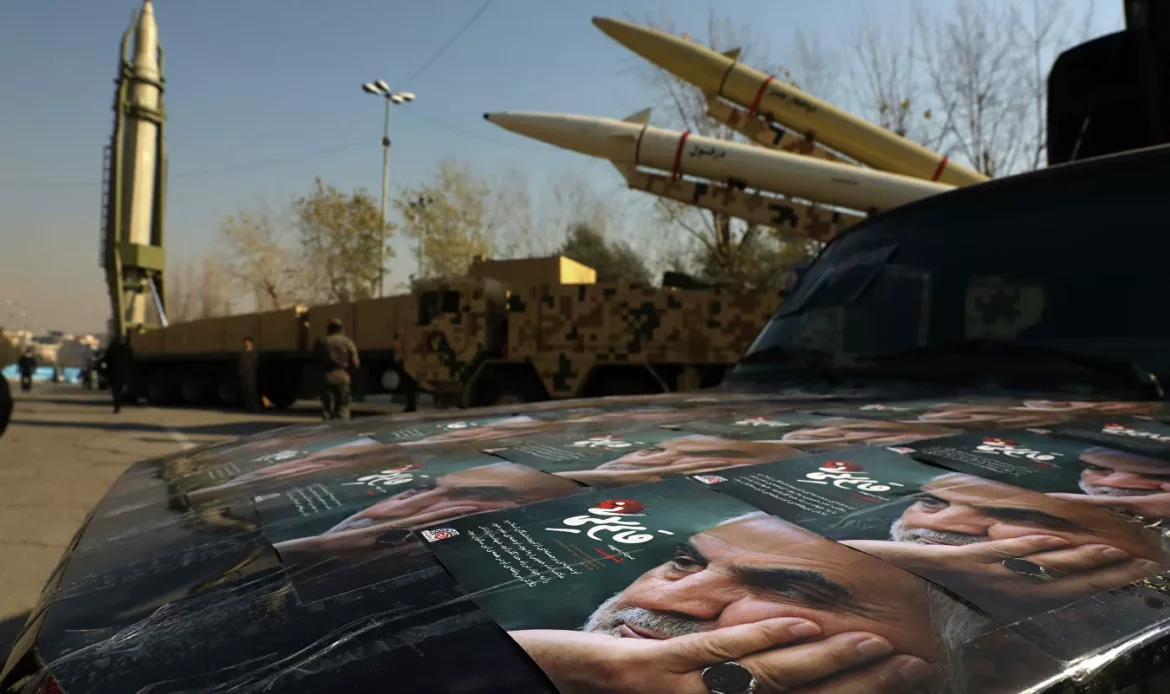Nations in the West have long been expressing concerns about Iran’s ballistic missile programme, urging Tehran to slash it during the signing of the Iran nuclear deal in 2015. Iran insisted that it needs these missiles for defensive purposes and will not end the programme.
The commander of Iran’s Islamic Revolutionary Guard Corps (IRGC), Major General Mohammad Bagheri has stated that the country will continue to advance its ballistic missile development and production as Tehran unveiled its new third-generation long-range missile dubbed “Kheibarshekan”.
The Kheibarshekan missile can hit targets at ranges up to 1,450 kilometres and is the latest addition to Iran’s armed forces, according to the IRGC. The force said on 8 February that it will be unveiling a new “strategic missile” soon that has been in development for years and has already undergone tests in combat situations.

© Photo : IRGC /Tasnim News Agency/screenshot
The new missile is a solid-fuel based projectile and the time needed to prepare it for launch has been reduced by one-sixth compared to other IRGC strategic armaments, the Tasnim news agency reported. The IRGC also boasted that the Kheibarshekan is capable of penetrating air defences by manoeuvring during the late stage of its flight – when missiles are often intercepted due to their projected target and trajectory being calculated by then.
Missile Unveiling Amid Stalled Iran Nuclear Talks
Iran’s ballistic missile programme has long attracted criticism from the West amid concerns it might be used by Tehran against Israel. Iran itself has always insisted that the missiles are defensive in nature.
Nations included a non-binding call for Tehran to cease development of its ballistic missiles in the 2015 nuclear deal, but it was ignored by the Islamic Republic. The US brought up the issue of Iran’s missile programme once again last year, when it entered negotiations with Tehran on restoring the nuclear accord, decimated by President Donald Trump in 2018.
Washington reportedly wants to include a provision on limiting missile development in the new agreement. However, these attempts face fierce opposition by Iran, which insists on restoring the nuclear deal in its original form from 2015. This is reportedly one of the reasons why the negotiations in Vienna on restoring the accord have largely stalled.
Source: Sputnik



